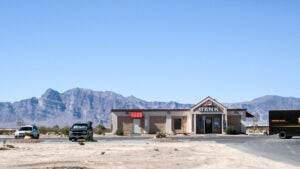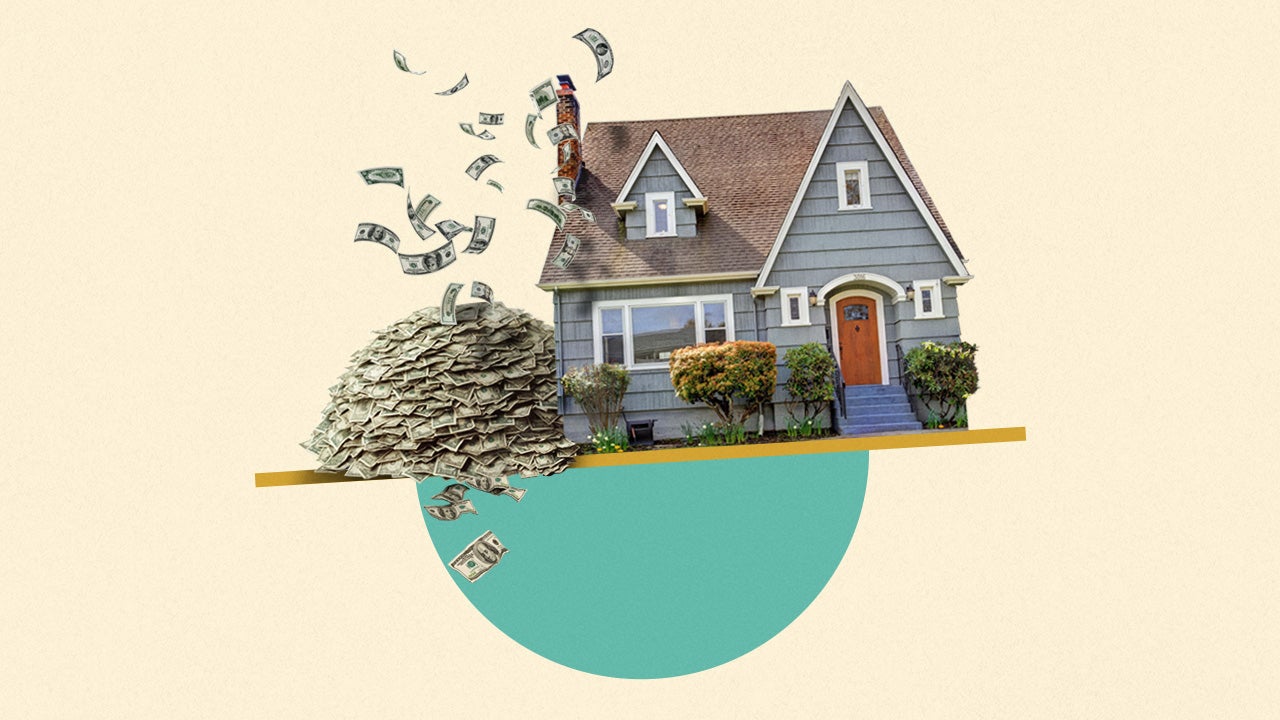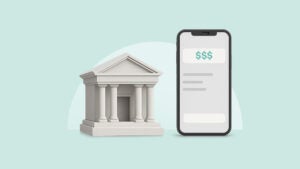What is open banking, and how will it affect me?

Open banking makes sharing your financial data with another company’s app easier than ever. Just as you might use a universal remote to control multiple devices, open banking lets you seamlessly connect and manage your entire financial life across different institutions and services.
This emerging financial ecosystem is transforming how consumers interact with banks and financial services, potentially making it simpler to manage money, access credit and make payments. Open banking is also reshaping the competitive landscape for financial institutions, pushing them to innovate and improve their offerings.
Here’s what you need to know about open banking in the U.S. right now, including the government’s efforts to regulate it.
As open banking continues to evolve in the United States, it ultimately could fundamentally change how you manage money, whether you want to open the top high-yield savings account or see all of your financial accounts on a single dashboard.
What is open banking and how does it work?
Open banking is a system that allows the sharing of financial data between banks and third-party service providers, such as budgeting or payment service apps, through application programming interfaces (APIs).
Unlike traditional banking where your financial information stays siloed within each institution, open banking creates a connected ecosystem that puts you in control of your data.
Here’s how it works:
- API technology: These serve as secure channels that allow different software systems to communicate with each other. In open banking, these APIs enable third-party providers to access financial data from banks.
- Consent: Customers must explicitly consent to share their data. This typically involves authorizing access through your bank’s platform or app.
- Third-party providers: These are typically fintech companies that can develop more innovative financial products and services by accessing and utilizing users’ financial data. They must be properly registered and meet security standards.
- Data sharing: Once authorized, your financial data can be shared securely between institutions — for example, your checking account information from Bank A can be accessed by App B to help you budget better.
Historically, many financial apps and institutions used “screen scraping” — a process which requires users to share their bank login credentials with a third-party app. It can be riskier than the API method and may give third-parties complete access to your account, rather than just the smaller amount of data they need.
“The customer doesn’t do anything different,” says Don Cardinal, vice president of member engagement at the Financial Data Exchange (FDX), a nonprofit organization recognized by the CFPB as a standard-setting body under its open data rule. “You still have an app on the phone. What’s different is it is a lot safer in that you aren’t over-permissioning data and you aren’t sharing credentials to anybody.”
Benefits of open banking for consumers
The ability for consumers to share their financial data for better money-management options has sparked innovation in all areas of personal finance. Some of the potential advantages of open banking include:
- Account aggregation: Some apps leverage open banking to provide a holistic view of your finances. These services allow you to connect multiple accounts from different financial institutions in one place, track spending patterns across all of your accounts and monitor your overall financial health with one dashboard. This could help you save more or build a better budget. According to J.D. Power’s recent Banking and Billing Intelligence Report, 41 percent of respondents said it’s extremely important for a bank’s mobile app to show the balances of their external accounts.
- Personalized products and recommendations: Open banking may enable more tailored financial services. For example, various budgeting apps, such as YNAB, provide tools that help you track spending, pay down debts and keep track of payment due dates. For example, U.S. Bank lets customers to link their accounts with select financial services apps, allowing these third parties to offer personalized offers and services.
- Easier account switching: With open banking, you can seamlessly transfer your banking history when switching to a new provider and compare financial products across multiple institutions more easily. This may help you find better CD rates or lower fees based on your needs.
- Build and access credit more easily: Some services, such as Experian Boost, allow you to add on-time bill payments to your credit report. These services scan your bank transactions for positive payments — such as cell phone, utilities, rent and insurance — which can help raise your credit score. Because open banking can be used to provide a more holistic view of a borrower’s financial health, this may improve their chances of being approved for credit. For instance, MoneyLion’s app allows users to link their bank accounts when they apply for loans, so lenders can see cash flow data when making approval decisions.
- Improved payment options: Through open banking, services such as Venmo use APIs to connect to the bank accounts of users, making for a quick way to send cash to friends and family.
“Open banking isn’t just some industry term that you randomly see when applying for a loan,” says Jane Barratt, chief advocacy officer at MX, a banking data analytics company. “It means you have control over your financial data — it’s yours, and you can share it with companies that you think can help you improve your financial health. This could be gaining access to cheaper forms of credit, getting better insights using a budgeting app or money management tool, or setting up direct payments. There are a ton of things you can do that make managing money more insightful and automated — and it is all based on data availability.”
Open banking security and privacy protections
While open banking offers plenty of benefits, it also raises important security considerations. The primary concerns include potential data breaches, unauthorized access to financial accounts, identity theft and misuse of personal financial information.
As more financial data is shared across platforms, the potential attack surface for cybercriminals increases. Additionally, there are concerns about third-party providers potentially selling or monetizing consumer data beyond what customers might expect when they consent to sharing.
To address these concerns, open banking systems implement several security layers:
- Data protection measures: Open banking systems implement several security layers, including end-to-end encryption for data transmission, multi-factor authentication requirements, regular security audits and compliance checks.
- Consent management: Users maintain control over their data through explicit consent requirements before data sharing. They have the ability to revoke access at any time.
For example, Regions Bank announced it’s working with data integration company Axway to offer a process through which customers can choose to share their information with third-parties such as financial management and budgeting services. The bank says it will monitor third-party activity and provide customers with the means to deactivate sharing from their Regions account at any time.
There are also a number of regulatory protections that establish baseline security requirements, which typically include mandatory registration, vetting of third-party providers, standard security protocols for all participants and regular reporting measures.
Ultimately, consumers’ trust in the open banking process may hinge on their level of trust with their bank. “It may depend on whether I trust that my financial institution has done the work to make sure that they and I are protected,” says Carey Ransom, managing director of BankTech Ventures, which invests in banking technology companies and supports community banking.
Open banking regulations
Regulatory frameworks for open banking vary significantly by region.
United States
The U.S. approach to open banking has been predominantly market-driven. This entrepreneurial approach has created a vibrant but sometimes fragmented ecosystem of financial data sharing.
On October 22, 2024, the Consumer Financial Protection Bureau (CFPB) finalized the Personal Financial Data Rights rule, based on Section 1033 of the Dodd-Frank Act.
The rule “requires financial institutions, credit card issuers, and other financial providers to unlock an individual’s personal financial data and transfer it to another provider at the consumer’s request for free”. Former CFPB director Rohit Chopra said the rule would make it easier for consumers to add or switch financial services providers. Depending on their size, financial institutions will need to start complying between 2026 and 2030.
However, the regulatory landscape faces significant uncertainty following recent political changes. After President Trump’s inauguration on January 20, 2025, Chopra was fired and the newly appointed Acting CFPB Director Russell Vought implemented dramatic changes at the agency, including shuttering headquarters and ordering a cessation of most operations.
International regulations
Unlike the United States, the European Union, Australia and other regions have mandated open banking by regulations for years.
- Europe: The Payment Services Directive (PSD2) establishes rules regarding consumer rights and protections regarding authentication and electronic payments for European Union (EU) member states. The European Banking Authority (EBA) develops technical standards and guidelines for open banking, while member states are responsible for enforcing the regulations.
- United Kingdom: After Brexit, the UK continues to follow the EU’s PSD2 rules, with the addition of its standard-setting Open Banking Implementation Entity (OBIE) and the regulatory body Financial Conduct Authority (FCA).
- Australia: Guidelines established by Australia’s Consumer Data Right (CDR) give consumers the ability to access their data and share it with accredited third parties.
- Brazil: The Brazilian Open Finance model’s stated purpose is to enhance the efficiency in credit and payments markets. Only institutions supervised by Banco Central do Brasil (BCB) can participate in the country’s Open Finance process.
Future regulatory developments
The introduction of common standards is helping define how peoples’ data is created, shared and accessed. These standards are issued by national bodies and regulators, such as in the U.S. through the Financial Data Exchange, a broad cross-section of banks, fintechs, and financial services groups that have aligned around a single data-sharing standard that could accelerate the adoption of open-banking API frameworks — perhaps globally.
In light of structural changes at the CFPB and its cancelation of various lawsuits, it remains to be seen what the future holds for the Personal Financial Data Rights rule in the United States.
The future of open banking
Open banking is evolving rapidly, with several emerging trends shaping its future:
- Expansion into open finance: The “open” concept is expanding beyond banking to include insurance data and products, investment and retirement accounts and broader wealth management.
- Artificial intelligence: AI technologies are also enhancing open banking through advanced financial recommendations, fraud detection and more automated financial planning.
For example, Ally Bank’s Surprise Savings feature utilizes open banking technology with smart algorithms. When Ally’s savings account holders sign up for this feature, they can link to an external checking account. Ally then monitors that external account and when it determines more money could be saved, it makes an automatic transfer to the customer’s Ally savings account. Read our review of Ally Bank here.
The open banking marketplace is also evolving through partnerships and acquisitions between traditional banks and fintech companies.
“We have self-driving cars. We have smart homes. Why can’t we have smarter, self-driving finances?” MX’s Barratt says. “Instead, most of us are juggling multiple apps, different accounts in different places, and a spreadsheet to understand our finances. There is a lot of opportunity for tech to reduce the mental load of money management.”
How to get started with open banking
It’s unlikely you’ve noticed a change due to online banking, especially since you may already be linking your bank account with a third party such as a budgeting app. In time, however, your experience of using outside apps may become more secure and reliable, thanks to open banking standards. You might also find it easier to access better banking options and accomplish financial chores in less time, as well.
Fintech companies such as Finicity and Plaid enable consumers to link their financial accounts to third-party services. Plaid uses API technology to power various apps for banking, investing, lending, budgeting and payments, such as: Acorns, Chime, Rocket Money, SoFi, and Venmo.
According to Plaid’s website, its apps have been used by more than 100 million users globally, and it connects more than 8,000 apps and services with more than 12,000 financial institutions in 17 countries.
If you’re looking to leverage more open banking services, check if your bank offers integration with third-party services – many online banks already have robust app ecosystems.
Bottom line
Chances are, you’re using some form of open banking already, such as to transfer money between accounts at different banks, or to use a budgeting app to help manage your money.
As open banking continues to develop, it may make financial services more accessible, personalized and efficient – potentially even improving how users build wealth over time. The extent to which this transformation accelerates will depend on both regulatory developments and consumer adoption.
Regardless of when and how much regulation is enforced, open banking will likely continue to evolve in the U.S. “I don’t know that the regulatory enforcement of it is going to drive it as much as the customers,” says BankTech Ventures’ Ransom. “They’re going to say, ‘Here’s what need, and this allows me now to get that, and I can move my data with me.’”
Why we ask for feedback Your feedback helps us improve our content and services. It takes less than a minute to complete.
Your responses are anonymous and will only be used for improving our website.







